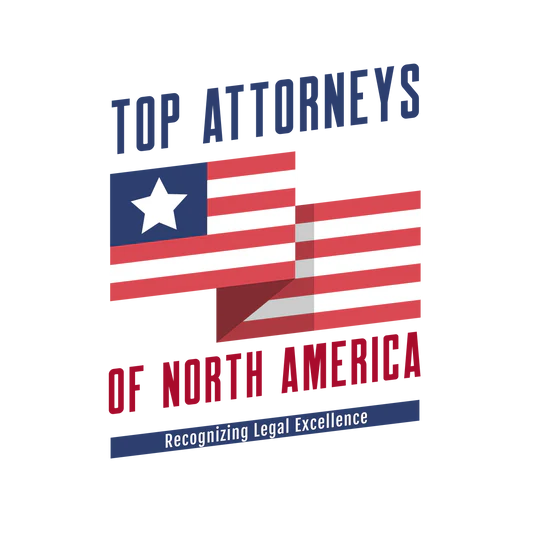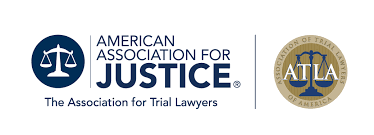Complex Insurance Coverage Explained in English, Korean, Chinese & Spanish for Manhattan, Brooklyn, Queens, Bronx, Staten Island & Long Island

Rideshare accidents involving Uber and Lyft present some of the most complex legal and insurance challenges in personal injury law. Unlike traditional car accidents, rideshare cases involve multiple layers of insurance coverage, corporate liability questions, and rapidly evolving technology that can make or break your case. When you’re injured in a rideshare accident, you need an attorney who understands these complexities and has the experience to navigate them successfully.
At the Law Office of Steven Louros, we’ve been adapting to the changing landscape of personal injury law for over 40 years. With our proven track record of over $500 million in verdicts and settlements, we understand how to handle the unique challenges that rideshare accident cases present in New York City’s complex legal environment.
What Our Satisfied Clients Say About Our Legal Services:
“For anyone in need of great personal injury lawyers, this is the team to have in mind. Got the support needed in a timely fashion. Great experience!” – Ramona Jar, New York
“Very good, the lawyer solved my case very professionally. The attorneys and assistants were very polite. I will recommend Steven Law Firm to my colleagues and friends!” – Tizeng Lin, New York
“这个律师非常专业,这个40多年经验。服务也非常周到,感谢这个律师帮我争取了合理的赔偿。” – Vicky Duan, New York
Table of Contents
- Understanding Rideshare Accidents in NYC
- The Complex World of Rideshare Insurance Coverage
- Determining Liability in Uber and Lyft Accidents
- Types of Rideshare Accidents We Handle
- When Rideshare Drivers Are “On Duty” vs “Off Duty”
- Evidence Collection in Rideshare Accident Cases
- Common Rideshare Accident Injuries
- Dealing with Uber and Lyft’s Insurance Companies
- Multilingual Considerations for NYC’s Diverse Rideshare Users
- Technology and Data in Rideshare Accident Cases
- Compensation Available for Rideshare Accident Victims
- Special Challenges for Different Types of Victims
- Frequently Asked Questions
- Contact Our NYC Rideshare Accident Legal Team
Understanding Rideshare Accidents in NYC
The Rise of Rideshare Services in New York City
Since Uber and Lyft began operating in New York City, they have fundamentally changed how people travel throughout the five boroughs. With tens of thousands of rideshare vehicles on NYC streets at any given time, rideshare accidents have become increasingly common.
NYC Rideshare Statistics:
- Over 100,000 licensed for-hire vehicles in NYC (including rideshare)
- Millions of rideshare trips taken monthly across the five boroughs
- Rideshare accidents increasing yearly as usage grows
- Complex insurance claims often take longer to resolve than traditional auto accidents
Why Rideshare Accidents Are Different: Unlike traditional car accidents between two private vehicles, rideshare accidents involve:
- Commercial vehicle operations with different insurance requirements
- Corporate entities (Uber/Lyft) with significant legal resources
- Technology platforms that control driver access and trip data
- Multiple insurance policies that may or may not apply depending on circumstances
The Legal Landscape of Rideshare Accidents
New York State Regulation: Rideshare companies must comply with New York State insurance requirements, but the coverage depends heavily on the driver’s status at the time of the accident.
NYC Licensing Requirements:
- All rideshare drivers must have TLC (Taxi and Limousine Commission) licenses
- Vehicles must meet specific safety and inspection standards
- Drivers must undergo background checks and training
- Insurance requirements are more stringent than private vehicle insurance
The Complex World of Rideshare Insurance Coverage
Understanding the Three Phases of Rideshare Coverage
Rideshare insurance operates on a three-phase system that determines which insurance applies:
Phase 1: App Off – Driver’s Personal Insurance
When: Driver’s rideshare app is not turned on Coverage: Driver’s personal auto insurance policy applies Rideshare Company Coverage: None – Uber/Lyft provide no coverage
Phase 2: App On, No Passenger – Limited Rideshare Coverage
When: Driver has app on and is available for rides, but no passenger assigned Coverage: Limited coverage from Uber/Lyft:
- $50,000 per person, $100,000 per accident for injuries
- $25,000 for property damage
- No comprehensive or collision coverage Gap Issues: Driver’s personal insurance may not cover commercial use
Phase 3: Passenger Assigned or In Vehicle – Full Commercial Coverage
When: Driver has accepted a ride request, passenger in vehicle, or traveling to pickup Coverage: Uber/Lyft’s full commercial insurance:
- $1 million liability coverage
- $1 million uninsured/underinsured motorist coverage
- Comprehensive and collision coverage for driver’s vehicle
The Insurance Gap Problem
Coverage Gaps That Hurt Victims:
- Personal insurance often excludes commercial use
- Phase 2 coverage may be insufficient for serious injuries
- Disputes between insurance companies about which phase applies
- International drivers may have inadequate personal coverage
How We Bridge These Gaps: Our experience with rideshare cases helps identify all available insurance sources and legal theories to maximize your recovery.
Determining Liability in Uber and Lyft Accidents
Who Can Be Held Responsible?
Rideshare accidents can involve multiple potentially liable parties:
The Rideshare Driver
When Driver May Be Liable:
- Negligent driving (speeding, distracted driving, etc.)
- Driving under the influence
- Violating traffic laws
- Fatigue from excessive driving hours
Driver Selection and Training Issues:
- Inadequate background checks
- Insufficient training on city traffic patterns
- Failure to verify driving competency
- Allowing drivers with poor records to continue
Uber or Lyft Corporation
Corporate Liability Theories:
- Negligent hiring: Failing to properly screen drivers
- Negligent supervision: Not monitoring driver safety
- Technology defects: App malfunctions causing accidents
- Routing problems: Dangerous GPS directions
Vicarious Liability Questions: Courts are still determining when rideshare companies are liable for driver actions. The classification of drivers as “independent contractors” vs. “employees” affects liability.
Other Drivers
Third-Party Vehicle Involvement:
- Another driver may have caused the accident
- Multiple vehicle collisions with shared fault
- Other rideshare or taxi vehicles involved
- Commercial vehicles or government entities
Vehicle Manufacturers
Product Liability Issues:
- Defective vehicles used for rideshare
- Safety equipment failures
- Autonomous vehicle technology problems
- Maintenance and inspection failures
Proving Liability in Rideshare Cases
Unique Evidence Sources:
- Rideshare app data and GPS tracking
- Driver ratings and complaint history
- Corporate safety policies and training records
- Technology platform records and communications
Challenges in Proving Corporate Liability:
- Rideshare companies have extensive legal teams
- They often claim drivers are independent contractors
- Corporate records may be difficult to obtain
- Technology evidence requires specialized expertise
Types of Rideshare Accidents We Handle
Comprehensive Representation for All Rideshare Scenarios
Passenger Injuries During Rides
Common Scenarios:
- Collisions while traveling to destination
- Sudden stops or acceleration causing injuries
- Door injuries during pickup or dropoff
- Assault or harassment by drivers
Unique Legal Issues:
- Rideshare company’s duty to protect passengers
- Background check adequacy
- Vehicle safety and maintenance standards
- Emergency response procedures
Pedestrians Struck by Rideshare Vehicles
Frequent Locations:
- Airport pickup areas (LaGuardia, JFK, Newark)
- Busy Manhattan intersections during rush hour
- Outside popular restaurants and entertainment venues
- College campuses and hospital areas
Complications:
- Determining driver’s phase of operation
- Distracted driving due to app use
- Unfamiliarity with pickup locations
- Illegal parking or stopping
Other Drivers Hit by Rideshare Vehicles
Common Causes:
- Rideshare driver distraction from app notifications
- Sudden lane changes to reach passengers
- Illegal U-turns or unsafe stops
- Fatigue from long driving hours
Insurance Complications:
- Multiple insurance policies involved
- Disputes over coverage phases
- Coordination of benefits issues
- Subrogation between insurance companies
Cyclists Injured by Rideshare Vehicles
NYC-Specific Risks:
- Bike lane violations by rideshare drivers
- “Dooring” incidents during passenger pickup/dropoff
- Right hook turns at intersections
- Distracted driving in areas with heavy bicycle traffic
Rideshare Accidents at Pickup and Dropoff Locations
Common Pickup/Dropoff Issues:
- Illegal stopping in traffic lanes
- Passenger confusion about vehicle location
- Other vehicles striking stopped rideshare cars
- Pedestrian accidents in pickup areas
Special Considerations:
- Airport and train station regulations
- Hotel and restaurant loading zones
- Residential area safety
- School and hospital zone restrictions
When Rideshare Drivers Are “On Duty” vs “Off Duty”
Critical Timing That Affects Your Case
The timing of when an accident occurs in relation to the driver’s rideshare activity is crucial for determining insurance coverage:
App-Off Situations
Driver’s Personal Time:
- Driving to/from their day job
- Personal errands and family activities
- Social activities unrelated to rideshare
- Commuting home after finishing rideshare driving
Insurance Implications:
- Only driver’s personal insurance applies
- Uber/Lyft provide no coverage
- Personal insurance may have lower limits
- Some personal policies exclude commercial use
App-On, No Ride Situations
Waiting for Ride Requests:
- Driving around looking for passengers
- Parked and waiting for ride requests
- Positioning for better pickup opportunities
- Between completed rides
Limited Coverage Issues:
- Reduced insurance limits during this phase
- Gap coverage problems
- Disputes over exact timing of app status
- Driver may try to claim app was off
Active Ride Situations
Full Commercial Coverage Applies:
- Driving to pick up assigned passenger
- Passenger in vehicle traveling to destination
- Multiple stops during single ride
- Waiting during passenger stops
Maximum Coverage Available:
- $1 million Uber/Lyft liability coverage
- Full uninsured/underinsured motorist protection
- Comprehensive collision coverage
- Additional coverage for serious injuries
Proving Driver Status at Time of Accident
Technology Evidence:
- App logs and GPS tracking data
- Ride request timestamps
- Payment processing records
- Driver location history
Witness Evidence:
- Passenger testimony about ride status
- Other drivers’ observations
- Surveillance footage showing app use
- Police report documentation
Documentary Evidence:
- Driver earnings records
- Rideshare company trip reports
- Cell phone records showing app activity
- Insurance claim documentation
Evidence Collection in Rideshare Accident Cases
Unique Evidence Sources in Rideshare Cases
Rideshare accidents require specialized evidence collection beyond traditional car accident cases:
Technology and App Data
Critical Digital Evidence:
- GPS tracking data from rideshare apps
- Driver’s route and speed information
- Passenger pickup and dropoff records
- App notification and messaging logs
Challenges in Obtaining Data:
- Rideshare companies often resist providing data
- Privacy laws may limit access
- Data may be automatically deleted after time periods
- Technical expertise required to interpret data
Driver Background and History
Important Driver Information:
- Background check records and results
- Driving record and violation history
- Previous accident and complaint history
- Driver ratings and passenger feedback
Corporate Training and Safety Records:
- Safety training completion records
- Corporate safety policies and updates
- Driver communication and warnings
- Vehicle inspection and maintenance records
Vehicle and Equipment Evidence
Physical Evidence:
- Vehicle damage patterns and analysis
- Safety equipment functionality
- Cell phone and app usage forensics
- Dashcam or surveillance footage
Maintenance and Safety Records:
- Vehicle inspection reports
- Maintenance history and receipts
- Safety recall compliance
- Insurance and registration records
Our Advanced Investigation Capabilities
Technology Resources: “这个律师很棒,非常专业地解决了我的案件。之后有朋友和同事需要的会介绍Steven给他们” – michael wang, New York
Our team works with technology experts to:
- Recover deleted or hidden app data
- Analyze GPS and location information
- Reconstruct accident timelines
- Examine driver behavior patterns
Corporate Investigation:
- Legal procedures to obtain corporate records
- Analysis of safety policies and compliance
- Investigation of driver hiring and training
- Review of corporate safety initiatives
Common Rideshare Accident Injuries
Injuries Specific to Rideshare Accidents
While rideshare accidents can cause any type of injury common to motor vehicle accidents, certain injury patterns are more frequent:
Passenger-Specific Injuries
Rear Seat Passenger Injuries:
- Lack of airbag protection in many rear seats
- Different seatbelt configurations
- Impact with front seats during collision
- Head and neck injuries from sudden stops
Door and Entry/Exit Injuries:
- Injuries while entering or exiting vehicles
- “Dooring” injuries from opening doors into traffic
- Slip and fall injuries during pickup/dropoff
- Injuries from automatic door mechanisms
Distracted Driving Injuries
App-Related Distraction Injuries:
- Accidents caused by drivers looking at phones
- Sudden stops or acceleration while using apps
- Wrong-way driving due to GPS errors
- Intersection accidents from missed signals
Fatigue-Related Injuries: Many rideshare drivers work long hours leading to:
- Microsleep episodes causing accidents
- Delayed reaction times
- Poor judgment and decision making
- More severe accidents due to lack of defensive driving
Psychological Injuries in Rideshare Cases
Trust and Safety Issues:
- Anxiety about using rideshare services
- PTSD from being injured while in someone else’s care
- Fear of being in vehicles with strangers
- Depression from loss of independence
Cultural Considerations: Different communities have varying comfort levels with rideshare services, and injuries can exacerbate cultural concerns about:
- Riding with unknown drivers
- Language barriers with drivers
- Cultural differences in driving styles
- Family concerns about rideshare safety
Dealing with Uber and Lyft’s Insurance Companies
Corporate Insurance Strategy vs. Individual Rights
Uber and Lyft have sophisticated insurance operations designed to minimize payouts:
Common Insurance Company Tactics
Phase Disputes:
- Claiming driver was “off duty” when app data shows otherwise
- Arguing accidents occurred between phases
- Disputing when rides officially began or ended
- Creating confusion about multiple insurance policies
Liability Shifting:
- Blaming other drivers or road conditions
- Claiming passenger contributed to injuries
- Arguing pre-existing medical conditions
- Minimizing corporate responsibility
Quick Settlement Pressure:
- Offering immediate settlements before full injury extent known
- Suggesting litigation is unnecessary or risky
- Using corporate resources to pressure individual victims
- Taking advantage of financial pressure from medical bills
How We Counter Corporate Tactics
Comprehensive Case Development: “스티븐 로러스 변호사님께 내 캐이스를 의뢰한 것은 나에게 축복이였습니다. 스티븐 로러스 변호사님은 내 캐이스를 내가 생각한것 이상으로 잘 끝내 주셨고, 또 사무실 직원들 모두 친절하게 해셨습니다.” – Yun Sun Chon, New York
Technical Expertise:
- Independent analysis of app data and technology
- Expert testimony on rideshare operations
- Corporate policy analysis and compliance review
- Advanced accident reconstruction techniques
Aggressive Advocacy:
- Thorough discovery of corporate records
- Depositions of corporate executives and safety personnel
- Public records research on safety violations
- Coordination with regulatory investigations
Multilingual Considerations for NYC’s Diverse Rideshare Users
Language Barriers in Rideshare Accidents
NYC’s rideshare ecosystem involves drivers and passengers from incredibly diverse backgrounds, creating unique communication challenges:
Driver-Passenger Communication Issues
Common Language Problems:
- Emergency communication during accidents
- Inability to provide clear pickup/dropoff directions
- Misunderstanding about ride destinations
- Difficulty reporting safety concerns to rideshare companies
Accident Response Complications:
- Communication with emergency responders
- Providing accurate information to police
- Understanding insurance procedures
- Describing injuries and symptoms to medical providers
Insurance and Legal Communication
Challenges for Non-English Speakers:
- Understanding insurance policy terms and coverage
- Communicating with corporate insurance adjusters
- Navigating complex legal procedures
- Understanding rights and legal options
Cultural Considerations: Different communities have varying:
- Comfort levels with authority figures
- Expectations about personal injury compensation
- Family involvement in legal decisions
- Attitudes toward litigation and settlement
Our Multilingual Approach to Rideshare Cases
Native Language Support: “这个律师非常专业,这个40多年经验。服务也非常周到,感谢这个律师帮我争取了合理的赔偿。谢谢办公室所有的工作人员” – Vicky Duan, New York
Comprehensive Language Services:
- Legal consultations in Mandarin, Cantonese, Korean, and Spanish
- Translation of all legal documents and insurance communications
- Interpreter services for medical appointments and legal proceedings
- Cultural liaisons who understand community values and concerns
Community Integration: “史蒂文律师很专业,工作人员也很配合工作。如果之后我朋友或同事需要的话我会向他们推荐史蒂文律师” – luo kim, New York
Our deep community connections help us:
- Understand cultural attitudes toward rideshare services
- Connect clients with culturally appropriate medical providers
- Navigate family decision-making processes
- Address community concerns about legal action
Technology and Data in Rideshare Accident Cases
Digital Evidence That Can Make or Break Your Case
Modern rideshare accidents generate vast amounts of digital evidence that can be crucial for your case:
Rideshare App Data
GPS and Location Information:
- Precise accident location and timing
- Driver route and speed before accident
- Passenger pickup and dropoff coordinates
- Driver behavior patterns and history
Communication Records:
- Driver-passenger in-app messaging
- Customer service complaint records
- Driver communications with rideshare company
- Safety incident reports and responses
Vehicle Technology Evidence
Modern Vehicle Data:
- Event data recorders (black boxes)
- Airbag deployment information
- Speed and braking data
- Steering and acceleration patterns
Mobile Device Evidence:
- Cell phone usage during driving
- App notifications and distractions
- GPS navigation errors or problems
- Communication records at time of accident
Surveillance and Camera Evidence
NYC’s Extensive Camera Network:
- Traffic camera footage from intersections
- Business surveillance covering accident scenes
- Dashcam footage from other vehicles
- Social media posts and photos from scene
Challenges in Obtaining Technology Evidence
Corporate Resistance:
- Rideshare companies may claim data is proprietary
- Privacy laws may limit access to some information
- Data retention policies may result in automatic deletion
- Corporate legal teams often resist discovery requests
Technical Complexity:
- Specialized expertise required to interpret data
- Multiple data sources must be correlated
- Time-sensitive evidence may be lost quickly
- Expert testimony required to explain technical evidence
Compensation Available for Rideshare Accident Victims
Understanding Your Recovery Options
Rideshare accident compensation can come from multiple sources, depending on the circumstances:
Insurance Coverage Sources
Rideshare Company Insurance:
- Up to $1 million liability coverage (Phase 3)
- Uninsured/underinsured motorist coverage
- Medical payment coverage
- Property damage coverage
Driver’s Personal Insurance:
- Primary coverage when app is off
- Gap coverage in some situations
- Additional liability limits
- Comprehensive and collision coverage
Third-Party Insurance:
- Other driver’s liability insurance
- Commercial vehicle insurance
- Government entity insurance
- Property owner liability insurance
Types of Compensation Available
Economic Damages:
- Medical expenses and future medical care
- Lost wages and reduced earning capacity
- Property damage and replacement costs
- Transportation and care expenses
Non-Economic Damages:
- Pain and suffering compensation
- Emotional distress and anxiety
- Loss of enjoyment of life
- Impact on relationships and family
Punitive Damages:
- Available in cases of gross negligence
- Corporate misconduct or cover-ups
- Deliberate safety violations
- Fraudulent or deceptive practices
Factors Affecting Compensation Amounts
Injury Severity and Impact:
- Permanent disabilities and limitations
- Need for ongoing medical care
- Impact on career and earning capacity
- Effect on daily activities and relationships
Available Insurance Coverage:
- Multiple insurance policies may apply
- Higher limits from commercial coverage
- Coordination of benefits between policies
- Potential for corporate liability beyond insurance
Case Strength and Evidence:
- Clear liability and fault determination
- Strong medical evidence of injuries
- Comprehensive documentation of damages
- Expert testimony and case presentation
Special Challenges for Different Types of Victims
Passengers vs. Pedestrians vs. Other Drivers
Each type of rideshare accident victim faces unique challenges:
Rideshare Passengers
Unique Legal Position:
- Generally not at fault for accidents
- Protected by rideshare company’s insurance
- May have claims against multiple parties
- Special duty of care from rideshare companies
Common Challenges:
- Pressure to accept quick settlements
- Complex insurance coordination
- Corporate legal teams protecting company interests
- Difficulty obtaining corporate records and data
Pedestrians and Cyclists
Vulnerability Factors:
- Often suffer more severe injuries
- May face bias about contributory fault
- Limited insurance coverage for catastrophic injuries
- Need for extensive medical and economic expert testimony
Proving Rideshare Driver Fault:
- App distraction while driving
- Illegal parking or stopping for pickups
- Unfamiliarity with pickup locations
- Violation of traffic laws during rideshare operations
[Read our blog on Pedestrian Accidents]
Other Drivers
Complexity of Multi-Party Cases:
- Multiple insurance companies involved
- Determination of fault percentages
- Coordination of medical treatment
- Subrogation issues between insurance companies
Proving Rideshare Driver Negligence:
- Driver fatigue from excessive hours
- Distraction from rideshare app notifications
- Pressure to reach passengers quickly
- Inadequate training for city driving
Client Testimonials Reflecting Our Comprehensive Approach
“Attorney Zhang is a very serious and responsible lawyer. When he was in charge of my case, he personally came to my door to explain the progress of the case to me in detail. He was careful and did everything conscientiously.” – Michelle Li, New York
“律师很负责任。工作人员也很认真交负责。如果朋友或同事需要会推荐给他们这个律师” – Yan Yu Chen, New York
Frequently Asked Questions
General Rideshare Accident Questions
Q: What should I do immediately after a rideshare accident? A: Call 911, get medical attention, document everything, gather information about the rideshare driver and vehicle, contact witnesses, and call an experienced rideshare accident attorney immediately.
Q: Does it matter whether I was a passenger, pedestrian, or other driver? A: Yes, your status affects which insurance coverage applies and what legal theories are available. Each situation has different challenges and opportunities for recovery.
Q: How long do I have to file a claim after a rideshare accident? A: Generally three years for a lawsuit, but insurance claims must be filed much sooner. Contact an attorney immediately because evidence can be lost quickly in rideshare cases.
Q: Can I sue both the driver and the rideshare company? A: Potentially yes, depending on the circumstances. Rideshare companies may be liable for negligent hiring, training, or supervision, while drivers may be liable for their negligent driving.
Questions About Insurance Coverage
Q: What if the rideshare driver claims the app was off during the accident? A: We can investigate app data, GPS records, and other evidence to determine the true status. Drivers sometimes falsely claim the app was off to avoid responsibility.
Q: How much insurance coverage is available for rideshare accidents? A: Up to $1 million from Uber/Lyft when drivers are actively engaged in rides, plus driver’s personal insurance and potentially other sources. The exact amount depends on the specific circumstances.
Q: What if I was injured as a passenger and the other driver was at fault? A: You may have claims against both the rideshare driver’s insurance and the other driver’s insurance, potentially providing multiple sources of recovery.
Q: Will my own insurance cover me in a rideshare accident? A: Your personal insurance may provide coverage depending on your role in the accident and your policy terms. We review all potential sources of coverage.
Questions About Rideshare Companies
Q: Can I sue Uber or Lyft directly for my injuries? A: Potentially yes, if they were negligent in hiring, training, or supervising drivers, or if their technology or policies contributed to the accident.
Q: How do I get accident data from Uber or Lyft? A: Rideshare companies often resist providing data. Experienced attorneys know how to obtain this crucial evidence through legal procedures.
Q: What if the rideshare driver was using drugs or alcohol? A: This could support claims against both the driver and potentially the rideshare company for inadequate screening or monitoring.
Questions About Language and Cultural Issues
Q: I don’t speak English well. Can I still pursue a rideshare accident claim? A: Absolutely. We provide complete services in multiple languages and ensure that language barriers never prevent you from getting the compensation you deserve.
Q: The rideshare driver and I spoke different languages. How does this affect my case? A: Communication barriers can sometimes contribute to accidents or complicate evidence gathering, but they don’t prevent you from pursuing compensation.
Q: Will cultural differences affect how my case is handled? A: We understand and respect cultural differences while ensuring you receive the same quality representation and results as any other client.
Contact Our NYC Rideshare Accident Legal Team
Experienced Representation for Complex Rideshare Cases
Rideshare accidents require specialized knowledge of corporate insurance policies, technology evidence, and rapidly evolving regulations. You need an attorney who understands these complexities and has the resources to take on large corporations.
Don’t let Uber and Lyft’s corporate legal teams intimidate you.
Why Choose the Law Office of Steven Louros for Your Rideshare Case?
Proven Experience with Complex Cases:
- Over $500 million recovered for injured clients
- Extensive experience with corporate defendants and insurance companies
- Success in cases involving multiple parties and complex insurance coverage
- Track record of obtaining maximum compensation for victims
Technology and Investigation Resources: “这个律师很棒,非常专业地解决了我的案件。之后有朋友和同事需要的会介绍Steven给他们” – michael wang, New York
Multilingual Excellence Our Clients Appreciate: “Steven Louros에게 10여년째 의뢰를 하고있는 의뢰인입니다. 신속하고 성실하게 사건을 처리하는 신뢰할수있는 변호사입니다. 특히 제니퍼 사무장님은 매우 친절하며 사건의뢰를 성실한 업무로 도와주셔서 정말 편하게 의뢰를 할수있는 분입니다.” – Joanne B, New York
Corporate-Level Legal Resources:
- Technology experts for app data analysis
- Accident reconstruction specialists
- Medical experts familiar with rideshare injury patterns
- Economic experts for complex damage calculations
Available Languages:
- English
- 中文 (Mandarin Chinese)
- 廣東話 (Cantonese)
- 한국어 (Korean)
- Español (Spanish)
Contact Information:
Phone: (718) 423-0448 | (212) 481-5275
Address: Manhattan: 1261 BROADWAY SUITE 507, New York NY 10001
Office Hours:
- Monday – Friday: 9:00 AM – 6:00 PM
- Saturday: 10:00 AM – 4:00 PM
- Sunday: By appointment
- 24/7 Emergency Consultations Available for Serious Rideshare Accidents
Service Areas:
We represent rideshare accident victims throughout:
- Manhattan: All neighborhoods, including major rideshare pickup areas
- Brooklyn: Including high-traffic rideshare zones and residential areas
- Queens: Flushing, airport areas, and all communities
- The Bronx: Complete borough coverage including commercial districts
- Staten Island: All areas including bridge approaches
- Long Island: Nassau and Suffolk Counties
- Westchester County: All municipalities
What to Bring to Your Consultation:
- Police report and case number
- Photos of vehicle damage and accident scene
- Medical records from any treatment received
- Rideshare app screenshots or receipts
- Insurance information for all parties
- Any correspondence from Uber, Lyft, or insurance companies
What to Expect:
- Free initial consultation in your preferred language
- Comprehensive case evaluation including technology evidence review
- Clear explanation of rideshare insurance complexities
- No pressure to hire us – the choice is always yours
- Immediate action plan for evidence preservation and case development
Take Action Now
Rideshare accident cases involve unique challenges that require immediate attention. App data can be deleted, corporate evidence can disappear, and insurance companies begin building defenses immediately.
Call now for your free consultation: (718) 423-0448
Remember:
- You pay nothing unless we win your case
- All consultations are completely free
- We handle all communication with rideshare companies and insurance companies
- Your immigration status doesn’t affect your rights
- Time limits apply to evidence preservation and legal claims
We fight to the end for rideshare accident victims across Manhattan, Brooklyn, Queens, The Bronx, Staten Island, and Long Island—providing personalized, results-driven legal care in the language you’re most comfortable speaking.
Contact the Law firm here : https://louroslawny.com/contact-form/
Legal Disclaimer: This content is the exclusive property of the Law Office of Steven Louros and is protected by copyright law. Any unauthorized reproduction, distribution, or use of this material is strictly prohibited and may result in legal action. The information provided on this website is for educational purposes only and does not constitute legal advice. Every rideshare accident case is unique, and past results do not guarantee future outcomes. For specific legal guidance regarding your situation, please contact our office directly for a confidential consultation with one of our experienced attorneys.
The Law Office of Steven Louros has been serving New York City’s diverse communities for over 40 years, adapting to the changing landscape of personal injury law while maintaining our commitment to aggressive representation and respect for cultural values. Our experience with rideshare accident cases reflects our dedication to staying current with legal developments while providing the personalized service our clients deserve.
Website: https://louroslawny.com







